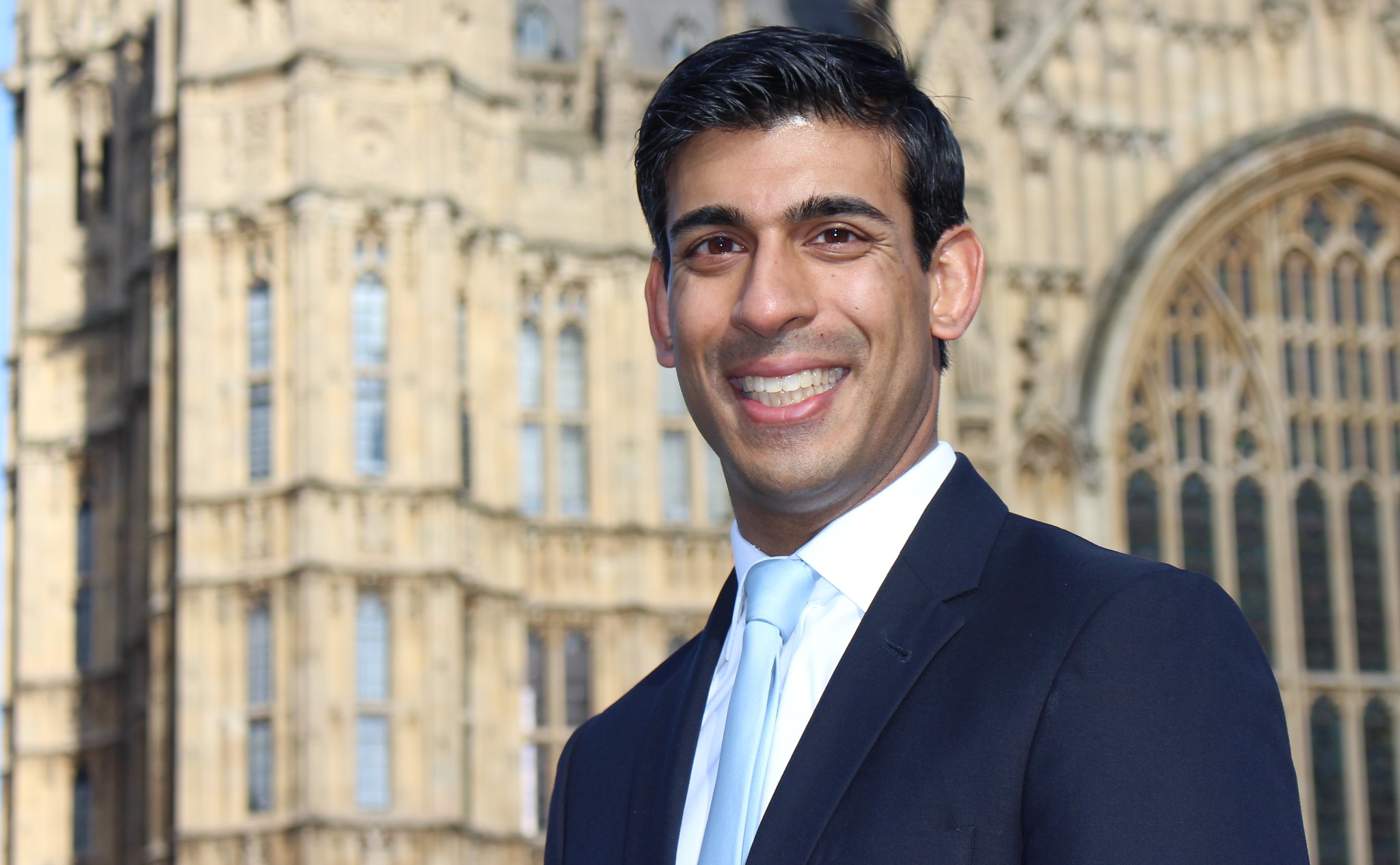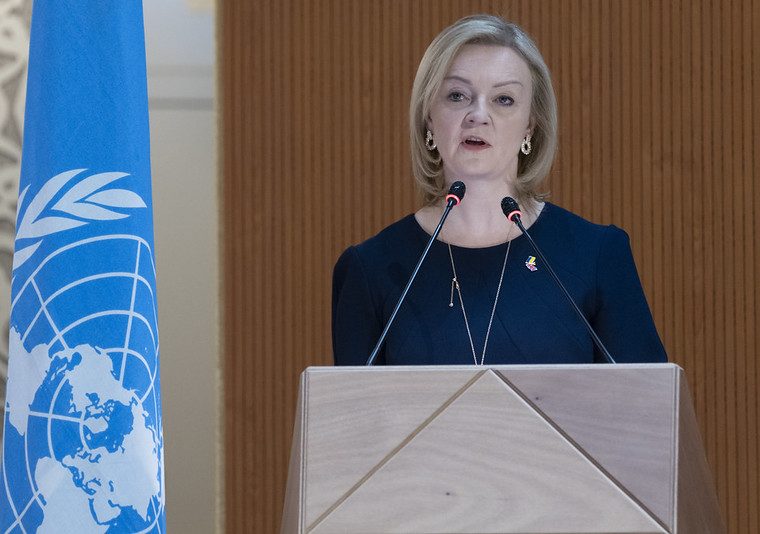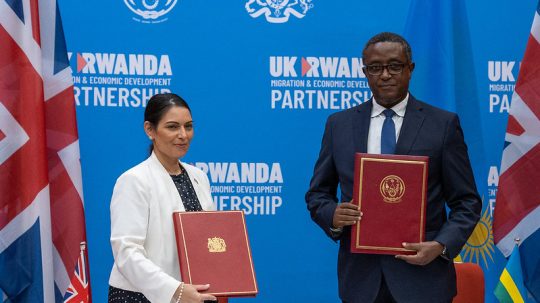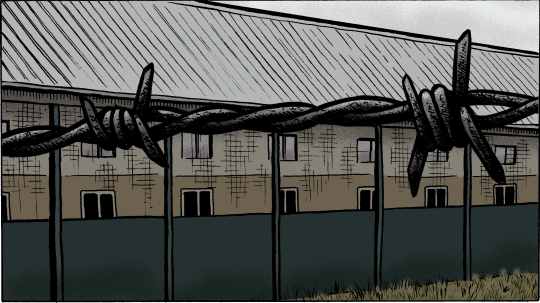Rishi Sunak has become prime minister, replacing Liz Truss as leader of the party after rival Penny Mordaunt dropped out of the race. It comes less than two months after he lost the leadership race to Truss, who resigned following the shortest-ever tenure as prime minister. Sunak, who previously served as chancellor under prime minister Boris Johnson, is the third British prime minister to serve since September this year.
Sunak has pledged to deliver on the Conservative’s 2019 manifesto, which includes commitments to implement an Australia-style point system for immigration, updating the Human Rights Act and reaching net zero climate emissions by 2050.
In his short speech at Conservative Party HQ yesterday, he said: “There is no doubt we face a profound economic challenge,” and that it was his “utmost priority to bring our Party and our country together”.
Asylum seekers’ rights and immigration
Sunak vowed to introduce a ten-point plan for immigration during his previous leadership campaign in summer. He said he would implement “enhanced powers to detain, tag, and monitor illegal migrants”. Civil liberties charity Liberty has described previous governments’ monitoring of migrants under the ‘hostile environment’ as “state-sanctioned discrimination”, which is “fundamentally incompatible with the human rights laws the UK is signed up to”.
As part of the plan, Sunak said he would cap the number of refugees the UK would accept each year “via safe and legal routes”. Under the 1951 Refugee Convention, to which the UK is a signatory, a “refugee should not be returned to a country where they face serious threats to their life or freedom”. The Universal Declaration of Human Rights also enshrines a person’s right to leave their country and seek asylum in another country.
He said he would “tighten the definition of who qualifies for asylum in the UK” by giving primacy to the Refugee Convention over the European Court of Human Rights’s (ECtHR) interpretation, which he described as “more expansive”. Dr Jonathan Collinson, a law lecturer at the University of Huddersfield, described this as “legally illiterate” in a blog post in August. Collinson said Sunak had falsely implied the ECtHR can determine who is a refugee in the UK, and confused refugee status, which the Refugee Convention determines with humanitarian protection which is derived from the European Convention on Human Rights (ECHR).
Sunak previously made it clear that he intends to keep the Rwanda policy, which allows the government to deport people who have migrated to the UK, including asylum seekers, to Rwanda. He “signed off” and funded the Rwanda Asylum Partnership Agreement, and stated on his website that he would do “whatever it takes to get our partnership with Rwanda off the ground and operating at scale and pursuing other migration partnerships”. The UN’s Refugee Agency has said the scheme undermines the Refugee Convention. He pledged to set up a task force to ‘crack down’ on people crossing the English Channel in small boats and to cooperate with France on the issue. He also promised to double the number of deportations of foreign national offenders by halving the time a person would need to serve in prison to be deported from 12 months to six.
When it comes to the EU, Rishi Sunak generally voted against a right to remain for EU nationals already living in the UK.
Levelling up and economic rights
The cornerstone of the 2019 manifesto was ‘Levelling Up’, a term used to describe a series of policies to “spread opportunity more equally across the UK”. The UK has signed the International Covenant on Economic, Social and Cultural Rights, which stipulates that countries should use their “maximum available resources” to ensure that people have an adequate standard of living, including improving living conditions.
Inflation has meant food prices have shot up by more than 10% since last year and 93% of adults in Britain reported an increase in their cost of living compared with a year ago. Analysis by the New Statesman shows that regions outside of London and the south are expected to experience slower growth than the national average in the next year.
Rishi Sunak was heard during his previous leadership bid in August saying to Conservative members in Tunbridge Wells that he had taken money away from deprived urban areas to give it to wealthier towns. In his resignation letter, he laid out his vision of Britain as a “low tax, high growth economy” that would require “difficult decisions”. He pledged to cut government spending, which he described as “bloated” and reversed the £20 uplift in Universal Credit last year which he had implemented during the pandemic.
However, in his role as Chancellor, one of Sunak’s most notable moves was the introduction of the furlough scheme to support workers when the country faced national lockdowns as a result of the Covid-19 pandemic. Sunak also promised some progressive economic measures, such as uprating welfare benefits in line with inflation and raising corporation tax from 19% to 25% – a policy quickly reversed by Truss.
When battling Truss during the summer leadership election, Sunak said his “top priority” was tackling inflation and the cost of living. He said that he hoped to implement tax cuts, but they needed to be gradual and “sustainable”. He warned Conservative members against Truss’s tax plans, which caused the pound to plummet to its lowest level since 1985 and triggered a spike in interest rates.
Environmental rights
Rishi Sunak has said he is committed to keeping the government’s goal of reaching net zero emissions by 2050, which is though the previous government’s strategy was found to be unlawful in the courts. If he does follow the 2019 manifesto, Sunak also looks set to keep environmental farming subsidies and stick to the ban on fracking, which Truss had promised to overturn.
However, Sunak has always voted against measures to prevent climate change and voted against financial incentives for low carbon emission electricity generation. He has also pledged to keep in place a ban on building new onshore wind farms but wants to introduce a legal target to make Britain energy self-sufficient by 2045 by overseeing a massive expansion in offshore turbines.
Human Rights Act
Rishi Sunak voted to repeal the Human Rights Act 1998 and has shown his support for replacing it with a Bill of Rights, a flagship policy of his supporter Dominic Raab, former justice secretary, which was shelved by Truss. He said that human rights law was a “problem” that was acting as an obstacle to government.
During the Conservative leadership contest in summer, Sunak said “all options are on the table” when asked if the UK will withdraw from the ECtHR following a ruling against the government’s plan to deport people to Rwanda.





